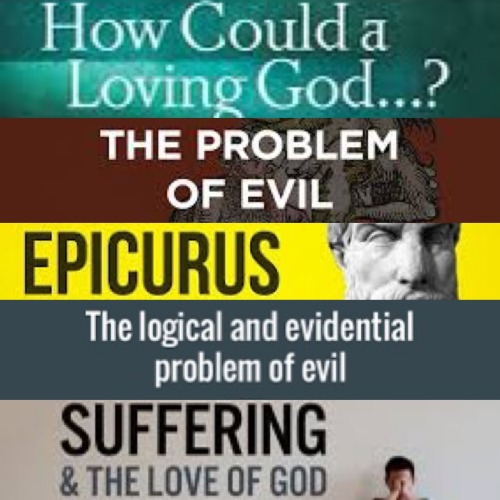TheexistenceofGod - Tumblr Posts

The Logical Problem of Evil
By Author Eli Kittim 🎓
The problem of evil is a philosophical conundrum that seems to contradict the existence of God. The question is as follows:
How can we reconcile the existence of
suffering and evil in the world with a
supposedly omnibenevolent, omniscient,
and omnipotent God?
At first glance, these two premises seem incompatible. The most well-known presentation of this dilemma is ascribed to the ancient Greek philosopher and sage Epicurus (341–270 bce). He framed the logical problem of evil as follows:
If God is willing to prevent evil, but is unable,
then he’s not all-powerful.
If he’s able to prevent evil, but unwilling,
then he’s not good.
But if he’s both willing and able,
how can evil exist?
And, if he’s neither able nor willing,
then why call him God? [or worship him?]
Epicurus is trying to point out the apparent incompatibility between the existence of evil and that of God. He’s trying to demonstrate that it’s logically impossible for both God and evil to exist. They are at loggerheads with each other. And since we know that evil and suffering exist, it must mean that God does not.
However, the premise that the existence of an omnipotent, omnibenevolent God contradicts the presence of evil is unsound. A squared circle or a married bachelor is certainly a contradiction. But it’s not logically inconsistent to speak of the existence of suffering and an all-loving powerful God in the same breath. Epicurus’ implication is that if God was all-powerful and/or all-loving he would not have allowed suffering or evil to exist. So, his premise presupposes that either an all-powerful, all-loving God exists and suffering does not, or else suffering exists and God does not. But both cannot exist simultaneously.
However, this is a false assumption. Why? Because if God grants human beings free will, then the possibility of choosing good or evil does not explicitly contradict the existence of God. In fact, if the opposite were true and God were to create a world in which people didn’t have free will and always chose the good, there would be no suffering, but neither would there be any freedom. It would be a world of programmed robots, not free people.
And how would we even know what good really is if evil and suffering never existed? After all, in the Bible, God promises to eliminate evil & suffering at the end of the age! So, how can we possibly know if God has good reasons for permitting evil and suffering to exist for a time? The answer is, we do not know. Both biblically and philosophically, good and evil are not mutually exclusive but coexist temporally and ontologically. Thus, it is not illogical for both God and suffering to exist simultaneously. As philosopher William P. Alston conceded, “It is now acknowledged on (almost) all sides that the logical argument is bankrupt” (The Inductive Argument From Evil and the Human Cognitive Condition. Philosophical Perspectives, vol. 5, Philosophy of Religion [1991], pp. 29-67).
—